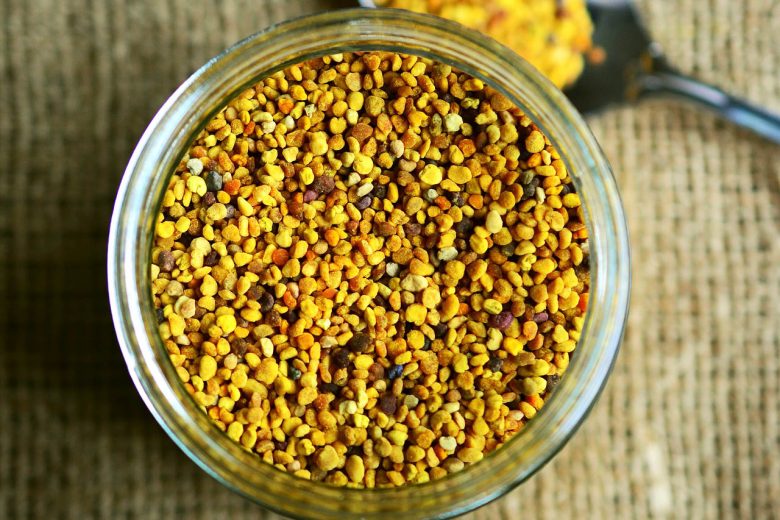Excellent bee pollen for weight loss benefits? Bee pollen is a part of various skin treatments and has been for ages. It does wonders for both cosmetic and health conditions of the skin. You can treat conditions such as rosacea, psoriasis, and infections. Additionally, you can add valuable amino acids and vitamins to your skin’s surface, helping you regenerate dead cells faster. Also, your skin will breathe better. You will look a lot younger and fight infections off better. It adds proteins and prepares your body for future challenges. Pollen makes your body better now and in the long-term because proteins are the building blocks of organisms.
Bee pollen boasts an impressive nutritional profile. It contains over 250 biologically active substances, including proteins, carbs, lipids, fatty acids, vitamins, minerals, enzymes and antioxidants. The latter category includes vitamins, minerals, antibiotics and antioxidants. However, the pollen’s nutritional content depends on the plant source and season collected. For instance, studies have shown that bee pollen collected from pine plants has approximately 7% protein, while pollen collected from date palm packs closer to 35% protein. In addition, bee pollen harvested during springtime has a significantly different amino acid composition than pollen collected during the summer. Summary Bee pollen contains over 250 biological substances, including protein, carbs, fats, vitamins, minerals, enzymes and antioxidants. The exact nutrient composition depends on the plant source and season collected. Read extra info at bee pollen benefits.
Bee pollen refers to the flower pollen that collects on the legs and bodies of worker bees. It can also include some nectar and bee saliva. Pollens come from many plants, so the contents of bee pollen can vary significantly. Don’t confuse bee pollen with bee venom, honey, or royal jelly. People take bee pollen for nutrition; as an appetite stimulant; to improve stamina and athletic performance; and for premature aging, premenstrual syndrome (PMS), hay fever (allergic rhinitis), mouth sores, joint pain (rheumatism), painful urination, prostate conditions, and radiation sickness.
Bee pollen contains many active compounds that may have antioxidant, antimicrobial, and anti-inflammatory properties. Bee pollen contains antioxidants, vitamins, and other compounds, and may reduce damage in the cells from free radicals or oxidative stress. It may also protect cells from damage due to ultraviolet (UV) light from the sun. However, levels of antioxidants in bee pollen can vary widely based on the plant types and growing conditions in the area where bees collected the pollen.
Bee pollen is a valuable apitherapeutic product greatly appreciated by consumers of natural medicine. Bee pollen is known for the potential it has within nutritional applications and the variable dietary benefits it gives. Bee pollen demonstrates a series of actions such as antifungal, antimicrobial, antiviral, anti-inflammatory, hepatoprotective, anticancer immunostimulating, and local analgesic. Beneficial properties of bee pollen and the validity for their therapeutic use in various pathological condition have been discussed amongst scientist, athletes, and health enthusiasts. Bee pollen consists of the powdery substance that plants make to reproduce. The bees collect this on their legs and bodies and take it back to the hive as a food source. Bee pollen may also contain some flower nectar and bee digestive enzymes. See more info on https://thebeepollen.com/.

